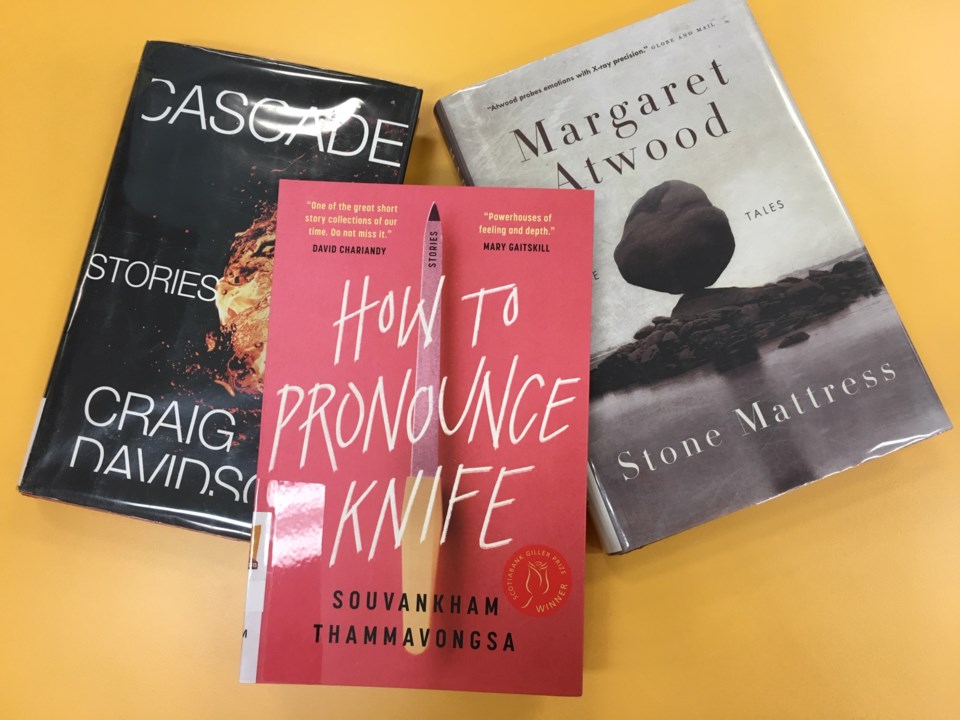According to the internet (that’s an excellent way to start a column), May is Correct Your Posture Month (probably not gonna happen), International Drum Month (which may also be in November? Revel with caution), Salsa Month (no information on whether extra mild is included in the festivities), and many other random, though nonetheless important celebrations. Of particular interest to us, though, is Short Story Month. Because reading.
The short story collection occupies an interesting existence somewhere between the poetry anthology and ever-elusive novella. Perhaps one of the greatest hesitancies readers face with the genre is that much like verse, there’s the presumption – sometimes warranted – that they will be required to do some ‘work’. Instead of getting lost in a narrative with whatever level of passivity one chooses, condensed writing demands a certain attention. Every word choice is purposeful, powerful. Every sentence holds a deeper meaning. And that dreaded symbolism.
The bane of some leisure readers’ existence. While that may be fair for some collections, short stories are also so often accessible, bitesize reading snippets that are well worth serious (or not so serious) literary consideration. Now if someone could only convince our book clubs. In the meanwhile, here are a few worth checking out (both literally and figuratively). See, we’re already back to the symbolism.
Cascade by Craig Davidson
Perhaps one of our all-time favourite ghost stories that’s not a ghost story but feels like a ghost story (we’ve just now decided that’s a genre) is Davidson’s Saturday Night Ghost Club. For those of you who aren’t familiar, the author used to live in Niagara and often writes about the Falls – both literally and in the abstract. Davidson’s writing is always expertly composed power braced by thoughtful observation, which makes a collection like this hit as hard as a more “complete” narrative. No complicated unravelling required.
First Person Singular by Haruki Murakami
Yes, this is a Murakami under 800 pages. We were surprised too. Now, forget everything we said about simplicity because these tales will leave you staring at the wall for twice the length it took to read them until suddenly two Tuesdays from now, you’re completing the most mundane work task and it will hit you. ‘Ok, wow. That’s what that story meant’. But let’s be honest. That’s the Murakami coming through, not the short story.
Stone Mattress by Margaret Atwood
If there’s ever an opportunity to include Atwood on any reading list – children’s, Canadian, poetry, fem fiction, favourite author hair – we’ll find a way to do it. And perhaps that’s part of the magic of Atwood’s’ appeal – equally skilled at crafting a dystopian universe as unlikely superhero, as lending a voice to the intricacies of complicated (and uncomplicated masquerading as complicated) relationships. Equally worthy of note is the author’s earlier collection, Dancing Girls and Other Stories (among, of course, many others).
Other notable works of short fiction include Nightmares Dreamscapes, Full Dark, No Stars, or If It Bleeds by Stephen King (though we happily devour his 900+ page tomes, poignant, pithy assortments are often where he really shines), How to Pronounce Knife by Souvankham Thammavongsa (recent Giller Prize winner and soon-to-be book club selection – yep, it’s happening), and basically anything by Alice Munro.
You can order any of the titles listed (or others) by placing a hold in our online catalogue or giving us a call at 905-227-2581. We can also pick items for you via our curbside curation service. Phone or email at [email protected], let us know how many titles you want, some kind of genre direction, or a ballpark of the number of kids you have, and we’ll take it from there



